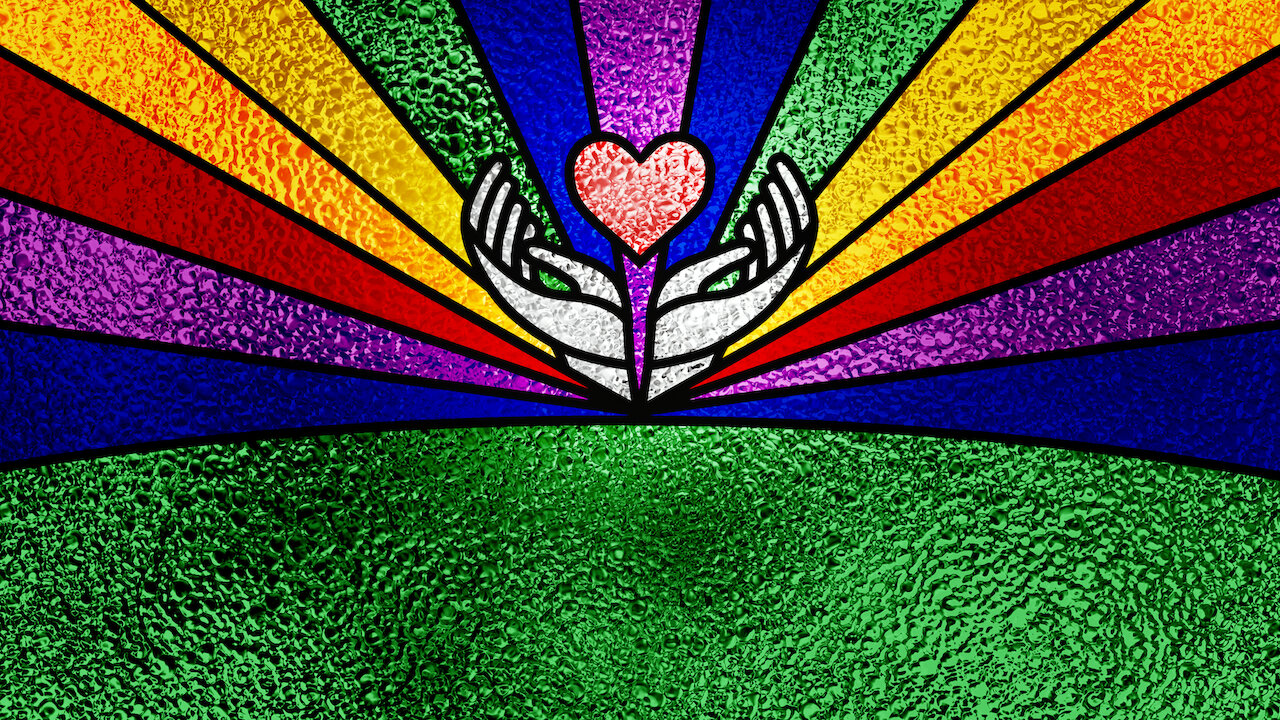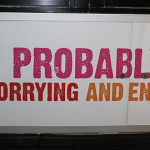(This is a submission I drafted in response to the 2021 Conversion Practices Prohibition Legislation Bill, currently under consideration by the New Zealand Parliament. If you’d like a PDF copy please get in touch).
To the Justice Select Committee:
Tēnā koutou katoa.
I enclose below my submission regarding the Conversion Practices Prohibition Legislation Bill currently being considered by Te Kāwanatanga o Aotearoa / The New Zealand Parliament. Thank you for taking the time to read and consider these views. I wish to present my submission orally.
I write as a representative of the Christian community, who wish to “love God with all our heart, mind, soul and strength”, and to love our neighbour as ourselves, through the grace and forgiveness that Jesus extends to those who follow Him.
As a Christian, I also speak from someone who holds to the traditional belief that marriage is a gift from God to all humanity intended to join one man and one woman for life, for the good of our world. I believe this because God’s Word serves as my highest authority, and those of the global Christian community.
As a pastor in an Asian-heritage church, journeying alongside 1.5 and 2nd generation Kiwi Asians, I also write from the experience of being a cultural minority within Aotearoa New Zealand. We understand and sympathise with the tension of seeking the welfare of our city while being treated like a perpetual outsider.
Finally, I write as a father of four beautiful children, who I long to see grow up knowing the secure and permanent identity that God offers to His beloved children. Accordingly, my submission draws from the Bible, which calls every Christian to speak “with gentleness and respect” (1 Peter 3:15).
Comments
I want to give thanks for the intent of this Bill to “prevent harm caused by conversion practices”, and to “promote respectful and open discussions regarding sexuality and gender”. I am grieved that some of the most hurtful and unloving “reparative therapies” have been funded, instigated and supported by so-called “Christian” organisations. I am thankful that the most egregious examples (such as Exodus International) have been shut down, and their interpretation of Scripture rightly critiqued. Jesus does not promise complete healing from every struggle we face in this life. At times, He says to his followers, “My grace is sufficient for you, for my power is made perfect in weakness.” (2 Cor 12:9). The responsible Christian parent, friend, professional, pastor or counsellor will not promise healing or therapy that is not guaranteed, nor at the heart of the Christian faith. The claim that same-sex attraction or gender dysphoria can and must always be cured in our lifetime is not supported by Scripture. This Bill, if passed, will certainly deter those who hold to this narrow and unnuanced view of Christian sexuality from inflicting undignified, coercive, and damaging practices on others.
Nevertheless, I do not believe that the Bill in its current wording achieves its aims to both “prevent harm” and to “promote respectful and open discussions regarding sexuality and gender”. I would like to point out the following concerns.
Firstly, the term “conversion practice” in the Bill is poorly defined.
Section 5 (1) states what conversion practice is, while Section 5 (2) describes 6 different exclusions. The phrase does not translate neatly into other languages, including Asian languages, which opens the Bill to ongoing confusion within our ethnic communities. Crucially, the fact that “conversion practice” must be qualified in at least 6 different ways shows that the term itself is flawed and should be reconsidered.
Outside of the Bill’s proposed definitions and qualifications, the term “conversion” is often associated with lawful and legitimate proselytisation, evangelism and other practices which do not seek to specifically target one’s sexual orientation. At the heart of every religion or worldview (be it Christianity or otherwise) is a desire to inform and persuade others of the good life that is found in their beliefs — in other words, a conversion practice. To define “conversion practices” in this Bill therefore sets up a problematic inconsistency where one particular set of beliefs are deemed “conversion practices” while another is not. It is the equivalent of using the phrase “football practice” only to describe a specific code such as rugby union, or Aussie rules, or Gaelic football.
A more appropriate term to describe what the Bill wishes to criminalise may be the more widely used “conversion therapy” (though perhaps still too broad), or the more specific “reparative therapy”. Perhaps this will also reduce the need for some of the qualifying clauses in Section 5 (2).
Secondly, the Bill fails to explicitly allow parents and family members to engage in “respectful and open discussions regarding sexuality and gender”.
Clauses (e) and (f) of Section 5 (2), may afford some kind of implied protection. But without an explicit protection of a family member’s right to counsel and advise their children on their sexuality, the Bill risks marginalising many non-Western and family-oriented communities.
While in many late-modern Western cultures, discussion of moral issues and practice are often left to individuals to decide, in many non-Western cultures, moral issues have a communal impact and are discerned alongside our parents, grandparents and wider whanau. This is not to excuse coercive, disrespectful or hateful practices — these are wrong regardless of culture — but to sideline parents and family members from entering these formative discussions entirely, risks being culturally insensitive to their role in society.
For example, the Bill as it stands gives full permission, for a school counsellor to encourage a child to transition their gender, whereas a parent or relative cannot encourage them otherwise or risk committing a “conversion practice”. I grant that this is a contested issue for supporters of this Bill, who see family-based coercion as the cause of much anguish to the LGBT community. Nonetheless, the lack of a safeguard for families to speak openly to their children is a significant barrier to this Bill’s full acceptance within the ethnic and Asian church communities that I belong to.
Accordingly, I support the adoption of the proposed additional clause drafted by the New Zealand Christian Network:
[in this Act, conversion practice does not include:]
(g) respectful and open discussions regarding sexuality and gender, and advice, guidance, prayer, or support given to anyone by anyone else including parents, family members, friends, counsellors, religious leaders, or health professionals, when such advice or support is requested, and is respectful and non-coercive. [emphasis mine]
Finally, the Bill risks criminalising help given to those who wish to deal with their unwanted sexual desires.
Section 10 of the bill explicitly rules out “consent” as a defence if a person is charged with performing a “conversion practice”. Given that the Bill’s current definition of “conversion practice” is broad enough to include practices such as prayer, counsel, and a call to pursue particular actions and ways of living, this puts unfair pressure on the spiritual conversations that pastors often have. In these settings, Christians do not merely wish to express a religious principle, but also wish to act in line with them (e.g. Rom 12:1-2, followed by a range of ethical demands). It would be equally inconsistent, for example, to merely believe that slavery is wrong, and not do anything about it. Individuals should be free to change or “suppress” their unwanted sexual or gender expression, and those who offer advice towards this should not need to risk committing a criminal offence.
Accordingly, as a Christian I have the privilege of caring for a number of friends who experience same-sex attraction, yet who themselves wish to follow the Bible’s teachings on marriage and sexual ethics (Matt 19:4-6, 1 Cor 6:9-11). If this Bill were approved, my practice of encouragement and prayer for them to keep pursuing holy sexuality and intimacy with Christ and community with His church, would fall under a “conversion practice”. I would suggest that the presence of Section 10 does not uphold the Bill’s stated aim to “promote respectful and open discussions regarding sexuality and gender”, but would discourage it among those who wish to live out their same-sex attraction in line with their religious beliefs, and those who wish to support them.
Final thoughts
Finally, I wish to conclude by acknowledging the heartbreaking prevalence of suicide among my LGBT/takatāpui friends and neighbours. This submission does not wish to minimise the hurt and suffering that unbiblical and unhelpful “therapies” have caused over the years, often within Christian communities. I would argue, with other Christians, that these practitioners have exchanged the good news of hope in Jesus, with a false gospel of hope in heteronormativity. Our LGBT friends and family are not cases to be cured, but fellow image-bearers who we invite to share the journey of taking up our cross and following Jesus.
As a former LGBT community activist and author Dr Rosaria Butterfield described it, “When the Lord entered my world, I experienced that gospel-ignited ‘expulsive power of a new affection’ (to quote the title of Thomas Chalmers’s famous sermon). That new affection was not heterosexuality, but Jesus, my Jesus, my friend and Savior. I was not converted out of homosexuality. I was converted out of unbelief.”
The Christian hope was never meant to be to turn from gay to straight, as if that makes us whole. Only in Jesus can we find our true selves. The true Christian gospel message is that all of us are sexual sinners who are invited to find true satisfaction, intimacy and joy through a life-giving relationship with Jesus Christ — made possible by his voluntary self-sacrifice on the cross for our sins. Therefore, every Christian should sympathise with those among us who struggle with same-sex attraction, and with their families, even as we continue to encourage each other to live godly lives that conform to the clear teachings of Scripture.
My hope with this Bill is that we do not solve an important problem by introducing others in its place. Rather, I hope that there may be a constructive way forward to improve this Bill, and look forward to engaging in person.
My ongoing prayers for the Select Committee, and for our beautiful country, are as follows:
- for gratefulness that hurtful and coercive “therapies” are being outlawed
- for repentance and forgiveness where we have not been kind and compassionate to our LGBT friends
- for wisdom to address legitimate concerns about the Bill regarding freedom of expression for parents and others
- for the grace and humility to point our LGBT friends and family to the sure hope of an identity in Christ.
Thank you once again for taking the time to consider this submission.
Sincerely,
William HC
English Pastor, Pakuranga Chinese Baptist Church
Recommendations to the proposed Bill
I would recommend:
- Changing the term “conversion practice” to “reparative therapy”, or a more clearly-defined term to represent the kinds of practices that should unequivocably be outlawed;
- Adding the following clause to Section 5 (2), so that the term “conversion practice” explicitly excludes (g) respectful and open discussions regarding sexuality and gender, and advice, guidance, prayer, or support given to anyone by anyone else including parents, family members, friends, counsellors, religious leaders, or health professionals, when such advice or support is requested, and is respectful and non-coercive.
- Removing Section 10 of the proposed Bill (“Consent not defence”) to honour the wishes of those with unwanted same-sex attraction / gender issues to receive pastoral care and counsel, without fear of prosecution for those who offer this help in a respectful and non-coercive manner.




